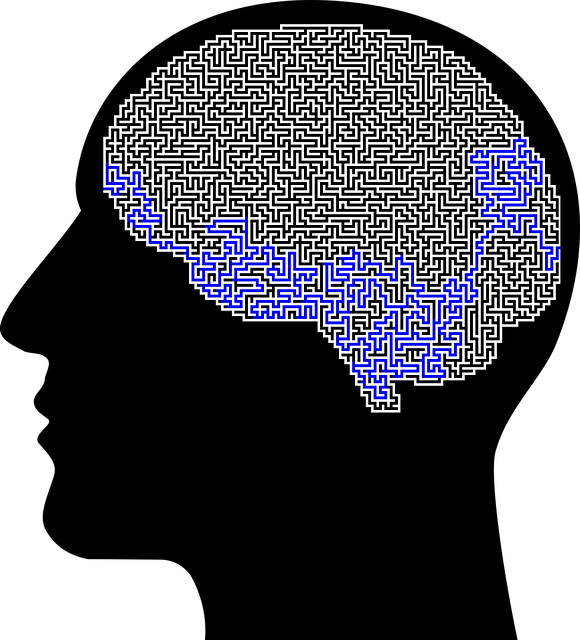Arvada CBT: Strategies for Depression Prevention & Proactive Mindset
Depression, fueled by triggers like trauma, stress, and chronic illness, is manageable with Arvada C…….
In the realm of mental health, the quest for effective treatment methods is an ongoing journey. Among the myriad therapeutic approaches, Arvada Cognitive Behavioral Therapy (CBT) stands out as a powerful and widely adopted technique. This article aims to delve into the intricacies of Arvada CBT, exploring its defining characteristics, global impact, economic implications, technological integrations, regulatory landscape, challenges, and the promising future it holds. By the end, readers will grasp the significance of this therapeutic method and its potential to revolutionize mental health care worldwide.
Definition:
Arvada CBT is a highly structured and goal-oriented form of therapy that focuses on identifying and modifying negative thought patterns, behaviors, and emotional responses. It is based on the cognitive theory, suggesting that our thoughts influence our feelings and actions. The ‘Arvada’ prefix distinguishes this approach as a specialized variant, tailored to address unique mental health challenges prevalent in specific regions or communities.
Core Components:
Historical Context:
The roots of CBT can be traced back to the 1950s with the pioneering work of psychologist Arnold Beck, who developed cognitive therapy as a more direct approach than traditional psychoanalysis. Over time, it evolved and gained recognition as an effective treatment for various mental health disorders. The ‘Arvada’ adaptation emerged from local initiatives aimed at adapting evidence-based CBT to address cultural and community-specific needs in diverse populations.
Significance:
Arvada CBT has gained prominence due to its:
Arvada CBT has left an indelible mark on mental health care worldwide, with its influence extending across continents. The global adoption of this therapy is driven by several key trends:
| Region | Impact and Initiatives |
|---|---|
| North America | Leading the way in CBT research, the US and Canada have seen widespread integration of Arvada CBT in private practices and public health systems. Online platforms offering remote therapy sessions have further enhanced accessibility. |
| Europe | European countries like the UK, Germany, and France have embraced CBT, with numerous clinical trials and government-supported programs showcasing its effectiveness. The European Federation of Psychological Associations (EFPA) plays a pivotal role in promoting evidence-based practices. |
| Asia Pacific | Countries such as Japan, Australia, and New Zealand have adapted Arvada CBT to their cultural contexts, focusing on community outreach and integrating it into primary care settings. |
| Middle East and Africa | The region has witnessed a growing interest in CBT, with initiatives aimed at training local therapists and integrating it into existing healthcare systems to address the mental health gap. |
| Latin America | Brazil and Mexico have seen successful implementations of Arvada CBT, particularly in community-based programs targeting underserved populations. |
The economic implications of Arvada CBT are significant, impacting both healthcare providers and society at large.
Market Dynamics:
Investment Patterns:
Economic Impact:
Technology has played a transformative role in the evolution of Arvada CBT, opening new avenues for delivery and accessibility.
Online Therapy Platforms:
Artificial Intelligence (AI) Integration:
Virtual Reality (VR) Therapy:
The regulatory framework surrounding Arvada CBT varies across jurisdictions, reflecting the diverse cultural and healthcare systems in place.
Key Policies:
Regulatory Influence:
Despite its proven efficacy, Arvada CBT faces several challenges and criticisms that require thoughtful strategies to address.
Common Challenges:
Proposed Solutions:
The following case studies illustrate the successful implementation of Arvada CBT, highlighting key learnings and best practices.
Case Study 1: Urban Community Initiative
Location: Denver, Colorado, US
Challenge: Addressing high rates of anxiety and depression among young adults in a diverse urban setting.
Approach: A community-based program offering group CBT sessions tailored to various cultural backgrounds. Digital platforms were used for remote support and peer connection.
Outcomes: The program saw a 40% reduction in symptoms of anxiety and depression among participants over six months, with high satisfaction rates. It also fostered a sense of community, encouraging continued engagement in mental health initiatives.
Case Study 2: Rural School District Intervention
Location: Small town in Oregon, US
Challenge: Improving the mental health of adolescents in a rural setting with limited access to traditional therapy services.
Approach: School-based CBT program integrated into existing counseling services, with online modules for self-paced learning. Staff received training to identify and support students’ mental health needs.
Outcomes: The program resulted in improved academic performance and reduced disciplinary incidents. Students reported increased coping skills and better relationships with peers.
Case Study 3: Cultural Adaptation in Urban Africa
Location: Nairobi, Kenya
Challenge: Introducing CBT to a culturally diverse urban population with limited mental health resources.
Approach: A community-led initiative adapted CBT techniques to incorporate local beliefs and practices. Group sessions were held in community centers, followed by individualized therapy.
Outcomes: The program successfully engaged hard-to-reach populations, leading to improved emotional well-being and reduced substance abuse. It also empowered local therapists to continue offering CBT services.
The future of Arvada CBT is filled with promising opportunities for growth and innovation. Several emerging trends and strategic considerations shape its trajectory:
Growth Areas:
Emerging Trends:
Strategic Considerations:
Arvada Cognitive Behavioral Therapy has emerged as a powerful ally in the global mental health arena, offering effective, accessible, and culturally sensitive care. Its ability to adapt to diverse contexts, coupled with technological advancements, ensures its relevance and impact across borders. As we navigate the future, the continued evolution of CBT, driven by research, innovation, and collaboration, holds immense promise for improving lives and fostering resilient communities worldwide.
Q: What is the main difference between traditional therapy and Arvada CBT?
A: Traditional therapy can be more open-ended and exploratory, while Arvada CBT focuses on specific, goal-oriented techniques to address identified issues.
Q: Is CBT effective for all mental health conditions?
A: CBT has shown success in treating various conditions, including depression, anxiety, PTSD, and substance use disorders. However, for complex or co-occurring disorders, a combination of therapies might be more suitable.
Q: How can I find a qualified therapist offering Arvada CBT?
A: You can start by asking your healthcare provider for recommendations, checking with local mental health clinics, or searching online directories specializing in CBT therapists.
Q: Can CBT be done remotely through video calls?
A: Yes, remote CBT sessions are common, especially with the rise of telehealth. Video conferencing allows for real-time interaction and access to therapy from anywhere.
Q: Is CBT a short-term or long-term treatment?
A: The duration varies depending on the individual’s needs. CBT can be a short-term solution for specific issues, but it is often most effective as part of a long-term management plan for chronic conditions.

Depression, fueled by triggers like trauma, stress, and chronic illness, is manageable with Arvada C…….

Arvada Cognitive Behavioral Therapy (CBT) prioritizes client safety and effectiveness through compre…….

Arvada Cognitive Behavioral Therapy (CBT) offers a powerful approach to mental wellness, focusing on…….